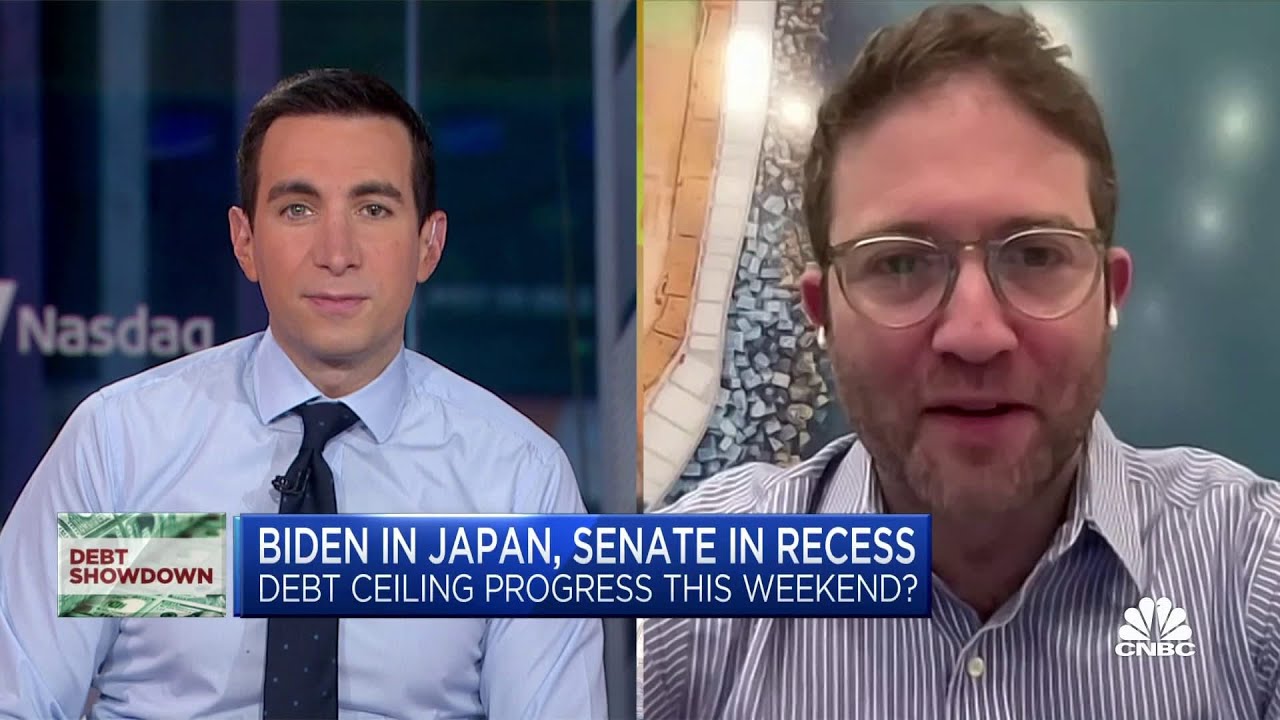I Don't Understand Wall Street's Optimism On Debt Ceiling, Says Punchbowl's Jake Sherman
Unleash Your Creative Genius with MuseMind: Your AI-Powered Content Creation Copilot. Try now! 🚀
When it comes to heavy equipment demand, there are several factors at play that determine the outlook for the year. In recent news, the stock market has shown a 2% increase, indicating some level of confidence in the market. However, there are still uncertainties that could impact the industry.
President Biden and House Speaker McCarthy are currently engaged in discussions to reach a deal before any potential default. Both sides are aware that they may face pushback and need to make concessions to secure an agreement. The situation is complex and nerve-wracking, with no clear resolution in sight.
The Optimism of Wall Street
Despite the ongoing negotiations, some are still puzzled by Wall Street's optimism. There's a feeling of uncertainty as to whether a deal will be reached, considering the massive hurdles involved. Republican demands, such as work requirements, spending levels, and length of the debt ceiling, have opposition within their own party. It will require McCarthy and Biden to roll up their sleeves and put in the effort to push the deal across the finish line.
McCarthy himself acknowledged the importance of meeting the June 1st deadline. A deal must be reached by Sunday, or at least a deal in principle by Monday, in order to stay on track. While progress is being made, there is still a significant gap to bridge.
The Contours of the Potential Deal
As discussions continue, the contours of the potential deal are starting to take shape. Budget issues are being addressed, with a focus on spending caps and the reclamation of unspent COVID relief funds. One of the main components includes permitting reform for clean energy and fossil fuel projects. This emphasis on energy reform seems to be a key priority.
However, not all Democrats are on board with the proposed spending caps. House Democrats, including those close to Jeffries, are hesitant to accept this condition. The challenge lies in finding a compromise that will satisfy both sides.
The political landscape in Congress adds another layer of complexity to the situation. In order for a deal to pass, it will require support from a significant number of both Republicans and Democrats. This bipartisan agreement is no easy feat, and Biden will need to convince both sides of the benefits of avoiding default and prolonged negotiations.
The Road Ahead
Looking ahead, the road to a finalized deal is not without its challenges. It wouldn't be surprising to see President Biden making a trip to Capitol Hill next week to rally support and make his case. Once the deal is reached in theory, the real work begins as it needs to be presented and debated in Congress.
Anchoring plays a crucial role in the final negotiations. The initial agreement sets the foundation, and any changes to the bill are unlikely to be made. McCarthy has promised to give every Republican 72 hours to read the bill before the vote, highlighting the importance of transparency and avoiding any last-minute surprises. The ultimate goal is to gain support from all parties and prevent a default that would be detrimental to everyone's interests.
In conclusion, the heavy equipment demand outlook for the year is still uncertain. The ongoing negotiations between President Biden and House Speaker McCarthy are essential in reaching a deal that satisfies both parties. The complexity of the situation requires careful consideration, compromise, and effective communication to ensure a resolution that benefits the economy as a whole.

Related Recaps
- 🚨 THE SECRET MIDFIELDER WANTED BY LIVERPOOL: KLOPP CALLED 5 TIMES…
- The Starship Damage Left Behind: How are SpaceX Moving Forward?
- New 2023 Honda CT125 Hunter Cub, Sounds, New Upgrade, Price,
- PISCES ♓ KMU SEGALANYA TUK DY;KMU MILIKI DUNIANYA;CINTANYA;HATINYA;JIWANYA;HOPELESS TANPAMU
- SCTV - GREAT WHITE NORTH (Hockey)